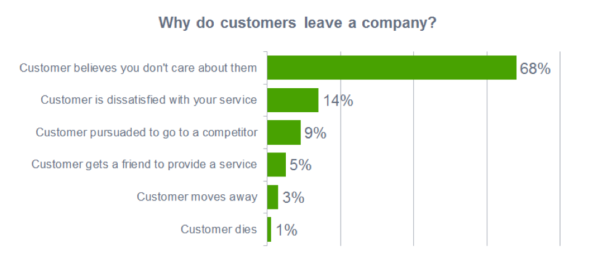Because Patients are People that Appreciate Great Service.
How do you feel when a service provider takes the time to be available when you need them, listens to your questions, empathizes with your concerns, appreciates your circumstances, explains your benefits, and presents convenient options that won’t add to your busy day?
Does this sound like the perfect customer service experience? And if we applied this same customer service strategy to healthcare, would that sound like the perfect patient experience?
The fact is, patients are healthcare customers and these views are indistinguishable from each other when their perception of your ability to deliver value and maintain their loyalty is also their reality. And patient experience matters to the patient now more than ever because the healthcare marketplace is constantly changing and allowing people to explore alternatives if they believe you don’t care about them.
Who needs the hassle?
To truly understand the perspective of the patient, we need to stop making assumptions about why our website sucks or that we need to cure all the ails of an entire industry to affect change.
Instead, try acknowledging some simple truths from your own experiences and apply them to healthcare:
- Everyone is too busy.
- Who looks forward to a doctor appointment?
- Bad news sucks.
- How much is this going to cost?
Patients engage with healthcare services in a time of need, and on top of everything else the last thing they need a hassle. People avoid hassles. And if they associate your healthcare services as such, they will avoid you.
Why stick around?
Have you ever checked in for an appointment and walked out because you were left waiting or the staff was rude? Or have you felt like you waited twice as long in the lobby than you actually spent time talking with a physician?
Whether you run a busy primary care office or a specialty clinic, most people (including the medical assistants that understand this all too well) have a 30min rule –– “if the staff leaves me in the lobby for 30 minutes without acknowledgement, I leave.”
Frustrated customers will vote with their feet, and worse, they will likely share their bad experience with everyone they know if they feel wronged. Not getting the attention they’re looking for in the moment or over time produces the same effect. And studies across multiple industries complimentary to healthcare prove that every touch point matters when it comes to loyalty.
68% of Customers Leave

Treat me like a VIP.
We are all self-interested, and so are your patients. Feeling important appeals to more than just our egos, it demonstrates that you are appreciated.
Attracting new patients has typically overshadowed a patient experience strategy, but they are actually one and the same. You can treat everyone like they’re your number one priority, with various levels of expectation.
There’s no special offer we can make to solicit new patients, but we can make it easy to engage with us. And there is no incentive we can offer for repeat business, but we can make you feel like a loyal customer and give you ‘head of the line’ options when it comes to scheduling appointments or feeling recognized and special at check in.
All the little things.
Quality outcomes are a true measure of your organizational success. But the patient will remember all the little things that produced that outcome, because all the little things are easier for them to measure.
People also like consistency. Look no further than the success of Starbucks® and consistency of their brand, locations and products. Patients like knowing what to expect and that if they belong, that they will be rewarded somehow for their loyalty. And it really doesn’t take much to make a lasting impression.
Yes. The big things matter, too. But the patient may be hung up on one facet of their journey and that becomes their lasting impression of your healthcare organization. So treat patients like healthcare customers, and when you do all the little things well, the big things start to take care of themselves.
Instrospective
When was the last time you performed a walkthrough of your patient experience?
How easy was it to schedule an appointment? Did you get a reminder? Did you feel like a VIP? Did you come away feeling like your organization is delivering on the little things?
Did you make a list of everything you would like to improve or change and what would be the lasting benefit? You might be surprised on how much that might matter to your patients.

